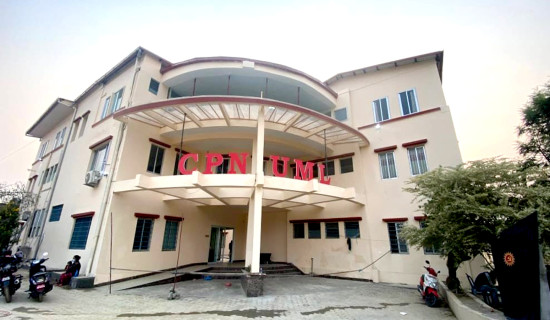- Sunday, 4 May 2025
In Praise Of Mikhail Gorbachev
Mikhail Gorbachev, who launched drastic reforms that helped terminate the Cold War and precipitated the breakup of the Soviet Union, died on last Tuesday. He was 91. His death has evoked worldwide reactions and glowing tributes have been paid for his boldness to execute consequential changes that have achieved epoch-making results in the international politics However, Gorbachev was not popular particularly within Russia for his allegedly flawed assessment and strategically erroneous calculation of the global and internal political relations and dynamics that led to the disintegration of the Soviet Union itself.
Incumbent Russian President Vladimir Putin, who has lamented the collapse of the Soviet Union, has described it as the greatest geopolitical catastrophe of the century. According to news reports, Putin has repeatedly blamed Gorbachev for failing to secure the explicit commitment from the Western powers that would contain and rule out NATO’s expansion eastward. However, in a letter of condolence issued, the other day, Putin neither fully praised nor criticised Gorbachev but described him as a man who left an enormous impact on the course of world history.
NATO’s eastward expansion
It needs no repeating the fact that the NATO’s eastward expansion issue has vitiated the Russia-West relations for decades. It fomented and accelerated tensions that exploded when the Russian president Putin sent troops to invade Ukraine during last February. The Ukraine war has lingered on for the last seven months with no immediate resolution in sight.
In his resentment of Gorbachev, Putin resonates more or less with majority of the Russian people who commonly associate the former Communist Party of Soviet Union (CPSU) chief with instability, chaos, and the end of everything associated with the one-time superpower and leader of the communist bloc. With some exceptions, even the intelligentsia, who arguably benefitted the most from Glasnost (democratic openness), introduced by the Soviet leader dilute their fondness for Gorbachev with disdain.
Within weeks of becoming chief of the Communist Party of the Soviet Union in 1985, Gorbachev had announced his intention to reform and modernise his country. In June 1987, he announced a new concept namely perestroika, or restructuring, of Soviet policies in every area -- both internal and external. Although he didn’t explicitly say so, what he meant by restructuring in terms of economic reform was liberalisation and market economy. As a result, the nation would legalise limited private enterprises and allow economic activities at private realm. Moreover, in political terms, the Soviet Union would relax censorship by allowing public discussion of topics that had previously been taboo during the Brezhnev era.
Although censorship laws were not abolished fully, the loosening of restrictions — the explicit aim of openness (Glasnost) — produced an unprecedented explosion of writing, publishing, filmmaking, performance, and music. People lined up to read the new issues of papers such as the Moscow News or to get into a theatre to see a newly staged play. The journals and newspapers commented on the issues and topics which were previously censored.
For the first time since Stalin’s death in 1953, Soviet citizens were publicly talking about their past. As a result, the forces unleashed because Perestroika and Glasnost became so strong that it was not possible to control or take them back. In 1987, Gorbachev released all Soviet political prisoners. His policies of Glasnost and Perestroika enabled critics of the Soviet structure like Andrei Sakharov, a Nobel laureate and world known dissident, to get elected to the Supreme Soviet – the Parliament. After Gorbachev had released him from internal exile, he was vehemently arguing against the monopoly of the Communist Party and pleading for introduction of democratic reforms.
In 1989, the Soviet Union released its grip on its European satellites — the countries that Moscow had effectively ruled since the end of World War II. One after another, Poland, the German Democratic Republic, Czechoslovakia, Romania, and others brought down their pro-Soviet governments. But it was not the case for the erstwhile Soviet Socialist Republics (SSR) also known as Russia’s internally controlled republics. When these internal republics aspired for independence, Moscow initially reacted with violent measures to suppress and quell down the moves.
In April, 1989, authorities used force, according to reports, to crush pro-independence protests in Tbilisi, the capital of Georgia, killing at least 21 people and injuring 290. During 1991, Soviet troops killed pro-independence activists in Riga, the capital of Latvia, and Vilnius, the capital of Lithuania, after the Baltic countries, which had been occupied by the Soviet Union during World War II, declared independence.
Tributes
Many tributes paid to Gorbachev have credited him with presiding over the quiet dissolution of the Soviet Union. However, it was overlooked that blood was in some cases, shed in conflicts in Armenia, Azerbaijan, Moldova, Tajikistan, and so on. In March, 1991, after not only the Baltics but also Russia and Ukraine — the largest Soviet republics — voted to secede from the Union. Gorbachev had called for a referendum to preserve the Soviet Union. Six of the 15 constituent republics refused to participate, but Gorbachev had claimed that the remaining nine validated the continued existence of the Union. However, he could not the checkmate the aspirations for change and thus failed to save the Soviet Union from being collapsed.
Anyway, Gorbachev is credited for ending the Cold War and dismantling of the Union of Soviet Socialist Republics. In 1990, the Nobel Peace Prize was awarded to Mikhail Gorbachev. In fact, Nobel Peace Prize nominations for that year had included Nelson Mandela, Vaclav Havel in particular apart from Gorbachev. However, it was noted that their deeds were results of new political thinking generated in the Soviet Union under the leadership of Gorbachev. The democratic change of 1990 in Nepal could be credited to the result of the epoch-making event in the Soviet Union and the Eastern Europe.
(The author is presently associated with Policy Research Institute (PRI) as a senior research fellow. rijalmukti@gmail.com)

















